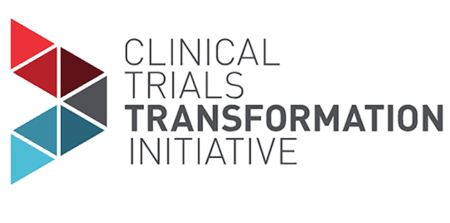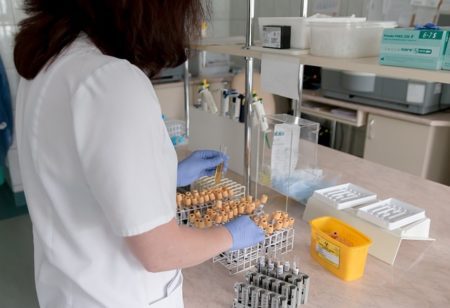Clinical Trials in the Age of Technology
 Progress in the war on cancer depends on research. Proof that the research is valid and treatments are safe and meaningful comes from clinical trials, yet fewer than 10% of cancer patients participate in them. The reasons for low participation include: patients don’t know about suitable trials, they aren’t offered a trial, they aren’t eligible for a trial, and/or there is no suitable trial available for them locally.
Progress in the war on cancer depends on research. Proof that the research is valid and treatments are safe and meaningful comes from clinical trials, yet fewer than 10% of cancer patients participate in them. The reasons for low participation include: patients don’t know about suitable trials, they aren’t offered a trial, they aren’t eligible for a trial, and/or there is no suitable trial available for them locally.
The mission of the Clinical Trials Transformation Initiative (CTTI) is to develop and drive the adoption of practices that will increase the quality and efficiency of clinical trials. CTTI brings together members from more than 80 organizations including representatives from government, industry, patient advocacy groups, professional societies, investigator groups, academic institutions and other interested parties. The Life Raft Group is pleased to be one of these organizations and to participate on the steering committee.
Clinical Trials in the Age of Technology
The latest CTTI meeting was held in Rockville, Maryland on September 10th, 2019. This meeting was focused on “Harnessing Technology & Real World Evidence for Tomorrow’s Clinical Trials.” The focus of this meeting was how mobile technology has improved clinical trials and the challenges and opportunities for this technology to have a much bigger impact in the future. The second related key area of focus was on virtual clinical trials. Put the two together and you have a goal: To conduct virtual clinical trials using new technology including mobile health technology.
If fully implemented, this type of trial has the ability to lower costs to both the sponsors and to the patient while simultaneously increasing the quality of data generated. One goal would be to greatly reduce travel of patients to remote clinical trial sites. Travel cost and taking time off work for travel are often significant barriers to clinical trial participation. For example, a mobile device could track a side effect or biomarker of interest (i.e., blood pressure) much more frequently than visits to a doctor’s office would allow.
Harnessing Mobile Biomarkers
A number of organizations presented examples of using mobile technology in clinical trials and research. The largest trial was an example of both harnessing mobile biomarkers and conducting a virtual trial. In this study, over 419,000 Apple Watch owners virtually enrolled and participated in a clinical trial monitoring atrial fibrillation (Afib). The fraction of patients with an Afib alert from the device was small, about 0.5%, but that was still 2,161 patients. The clinical trial protocol then allowed for these patients to be referred to doctors for appropriate follow-up. This trial was conducted by Stanford University, funded by Apple, and was conducted in only eight months.

Representatives from both the FDA (Food and Drug Administration) and the EMA (European Medicines Agency) were panelists at the meeting. Both regulatory agencies were extremely interested and supportive of the mobile and virtual trial initiatives and they saw great potential to transform the clinical trials process.
Another interesting presentation was from Open mHealth, a non-profit that has developed standards for transferring data between various devices and platforms. Open mHealth has developed standards for both iOS and Android devices (https://www.openmhealth.org/).
Digital Biomarkers Suggested
One of the more interesting stories of implementing digital biomarkers comes from Christine Taylor of the data science company, Orikami. Taylor tells the story of developing an app, MS Sherpa, that allows patients with Multiple Sclerosis (MS) to monitor and report their fatigue, mood, concentration, and stress. Using a process developed by CTTI, Orikami developed a set of digital biomarkers. One of these measures eye movements and another uses a two-minute walking test (https://blog.orikami.nl/what-we-learned-from-creating-digital-biomarkers-for-fatigue-a6a330cb1ca0).
The participants of the CTTI meeting see mobile technology and virtual trials not only as an important part of the future of trials, but also as transforming clinical trials of the future. They also pointed out that this is too big a job to be done alone. It will take many different specialists pooling their resources and talents to make it happen. :https://www.ctti-clinicaltrials.org/




